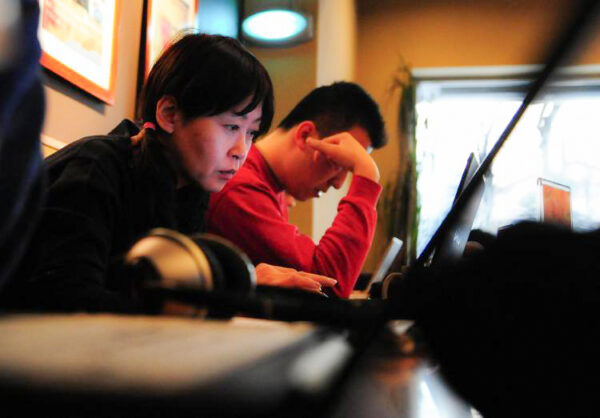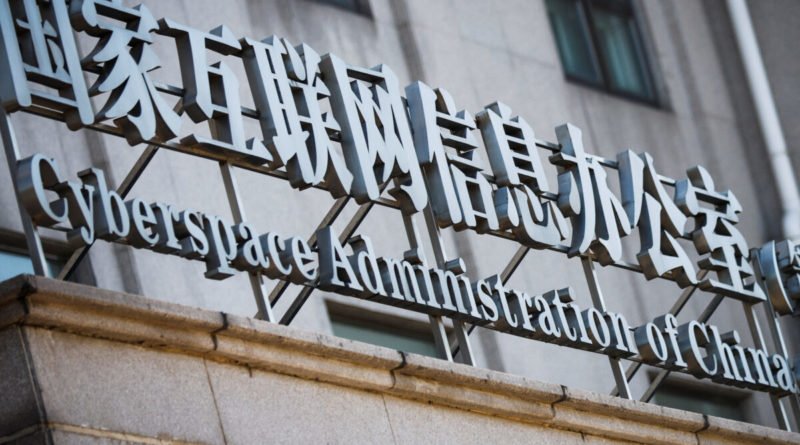Online Posts on Chinese Stock Market Analysis Are ‘Bad Influence’: CCP Internet Regulator
Chinese Internet police have engaged in a new wave of suppression of online discussions about the Chinese stock market.
A total of 373 social media accounts were shut down in its recent investigation of social media, for forwarding posts that the Internet regulator deemed “rumors and rumor-mongering,” according to a statement by the Cyberspace Administration of China (CAC) on July 15.
Cyberspace Cleaning
The latest move was part of Operation Qinglang—meaning “Operation Clear and Bright”—where the CAC began a “rectification campaign” to target specific social media users in March.
As of May 22, the authorities had penalized around 930,000 social media accounts, and permanently closed almost 67,000 accounts, as The Epoch Times has previously reported.
Recently, the regime conducted another round of cyberspace purges.
On July 10, the CAC issued a notice to strengthen the supervision of online independent reporters and bloggers.
It listed 13 measures to ensure management of all social media platforms and websites, such as qualification and certification of entities who provided the analysis, identifying information sources, labeling disputed information, restriction of profit and number of followers, etc.
On July 15, the Administration announced seven online cases that fit in the category of “manufacturing rumors and rumor mongering,” and they shut down 373 accounts for violating the CAC regulations as a punishment.
One of the seven examples of “rumor mongering” involved an economic policy analysis that the authorities deemed had a bad influence on the stock market. Several accounts that reposted the analysis were shut down as punishment.
Another case involved a video documenting a little girl in a mountainous area earning her tuition by collecting bottles for recycling. The authorities claimed the girl’s tuition was waived and the school provided her free lunches. Several media accounts that shared the video were shut down as a punishment.

Zhao Lanjian, a veteran Chinese journalist and photographer now living in exile, told the Chinese language edition of The Epoch Times that the authorities’ strict control of Chinese bloggers is to block their access to news and the flow of public opinion. It is machinery that only allows the rulers to speak, making claims in the name of representing the country.
The CAC simply negates freedom of speech, Mr. Zhao said.
Part of a New Troika
Economically, the troika driving the GDP growth has been known as investment, consumption, and export.
When the Chinese economy suffered during the three-year lockdown, netizens mockingly said that a new troika had evolved to help Chinese GDP growth, that is, vaccine, nucleic acid test, and quarantine hotel.
Now with the stagnant Chinese economy, commentator Qin Peng gave his definition of an even newer troika that’s maintaining the Chinese economy.
In his talk show, “Qin Peng Observation,” Mr. Qin dubbed the Statistics Bureau, Central Propaganda Department, and Cyberspace Administration of China as the new troika driving China’s economic growth.
According to Mr. Qin, the Statistics Bureau is responsible for manufacturing economic data that gives a positive image of the regime, the Central Propaganda Department for creating the illusion of economic prosperity, and the CAC for silencing negative information on the Internet.
Operation Qinglang
The CAC launched Operation Qinglang in August 2021 to specifically target commercial website platforms and accounts.
The authorities claimed that these websites and accounts have frequently violated the regulations, causing serious disturbance to netizens and the Internet order. The violations included publishing financial news, distorting national economic policies, bad-mouthing financial markets, manufacturing rumors and rumor mongering, and so on.
Following the latest move of the CAC, the Chinese Ministry of Public Security also began another week of clean cyberspace campaigns on July 17, encouraging netizens to help supervise and report bad influence accounts.
Li Jing contributed to this report.




